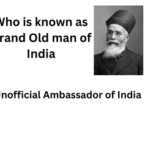Under Article 142 Supreme Court rules it can directly grant a divorce to couples

In cases of irretrievable breakdown of marriage, a five-judge bench of the Supreme Court held that it can exercise its powers under Article 142 of the Constitution to directly grant a decree of divorce to consenting parties without referring the parties to a family court where they must wait for 6 to 18 months for a decree of divorce by mutual consent.
LEARNING FROM HOME/ WITHOUT CLASSES/BASICS
Article 142 provides discretionary power to the Supreme Court as it states that the SC in the exercise of its jurisdiction may pass such decree or make such order as is necessary for doing complete justice in any cause or matter pending before it. the country’s highest court plenary power to ensure the secured administration of justice. Article 142 has been formulated with the intention of satisfying circumstances that cannot be dealt with efficiently and adequately by existing provisions of law.
Under Section 13B of the Hindu Marriage Act(HMA), 1955, the procedure to obtain a divorce by mutual consent is laid down. Section 13B (1) states that both parties can file a petition for dissolution of their marriage by presenting a decree of divorce to the district court, on the grounds that they have been living separately for a year or more or that they have not been able to live together or have mutually agreed to dissolve their marriage.
Further, under Section 13B (2) of the HMA, both parties seeking divorce have to wait between 6 to 18 months from the date on which they presented their petition to obtain the divorce decree. The six-month period is given so that the parties have ample time to withdraw their plea.
After the passage of the mandated period and hearing both parties, if the court is satisfied, it may conduct an inquiry and pass a decree of divorce, dissolving the marriage with effect from the date of the decree. However, these provisions apply when at least one year has elapsed since the marriage took place.
Additionally, divorce can be sought by either spouse on grounds like adultery, cruelty, desertion, religious conversion, insanity, leprosy, venereal disease, renunciation, and presumption of death.
In a recent SC judgment in the Shri Rakesh Raman vs. Smt Kavita case, the court said “irretrievable breakdown of marriage” can be read under the grounds of cruelty, under S13 (1) (a) of the Hindu Marriage Act.





0 Comments